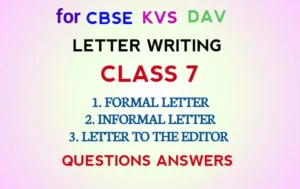Explore Subject-Verb Agreement Quiz MCQ Questions Answers (2024) for comprehensive preparation. Master the intricacies of subject-verb agreement quiz questions and answers. Elevate your grammar proficiency, grasp the rules, and access expert tips to excel in your quizzes.
Understanding the Importance of Subject-Verb Agreement Quiz MCQ
In the world of grammar, subject-verb agreement is super important for getting sentences right.
When subjects and verbs match up correctly in number, whether they’re singular or plural, it makes your writing clearer and better. Learning this basic grammar rule can really help you improve your writing and speaking skills.
In this comprehensive article, we delve deeply into subject-verb agreement quiz questions answers, offering invaluable insights, expert guidance, and practical examples to aid you in mastering grammar – Subject Verb Agreement Quiz MCQ Questions Answers (2024).
People also ask
Subject Verb Agreement Quiz Questions Answers: Unraveling the Basics
Subject-verb agreement, as the name suggests, deals with the agreement or concord between the subject and the verb in a sentence.
To form grammatically correct sentences, it is essential to ensure that singular subjects are paired with singular verbs, and plural subjects are paired with plural verbs.
This agreement is necessary to maintain clarity and coherence in written and spoken communication.
Common Mistakes in Subject-Verb Agreement
Before we delve into the quiz questions and answers, let’s explore some common mistakes people make in subject-verb agreement:
Mismatched Number: Using a plural verb with a singular subject or vice versa is a common mistake. For example, “The mangoes (plural subject) is (singular verb) sour” should be corrected to “The mangoes are sour.”
Intervening Phrases: Sometimes, intervening phrases can confuse the subject-verb agreement. For instance, “The dog, along with the cats, are playing” should be “The dog, along with the cats, is playing.”
Collective Nouns: Collective nouns, though singular in form, require singular verbs. For example, “The team is practicing” is correct, not “The team are practicing.”
Indefinite Pronouns: Indefinite pronouns such as “everyone,” “somebody,” or “each” are singular and should be paired with singular verbs. For instance, “Everyone loves their job” should be “Everyone loves his or her job.”
2024 Subject-Verb Agreement Quiz: MCQs and Answers: Test Your Subject-Verb Agreement Skills Now!
2024 Subject-Verb Agreement Quiz: Assess Your Subject-Verb Agreement Proficiency Today! Test your comprehension with a variety of interactive quiz questions, and evaluate your mastery by selecting the correct answers.
Subject-Verb Agreement FAQs:
FAQ 1: What is subject-verb agreement?
Answer: Subject-verb agreement is a grammatical concept that ensures the correct pairing of the subject and the verb in a sentence, based on their number (singular or plural).
FAQ 2: Why is subject-verb agreement important in writing?
Answer: Subject-verb agreement is vital in writing to maintain clarity, grammatical accuracy, and overall credibility. It ensures that sentences are correctly structured and easily comprehensible.
FAQ 3: Can collective nouns be paired with plural verbs?
Answer: No, collective nouns should be paired with singular verbs. For example, “The team is practicing.”
FAQ 4: How can I avoid common subject-verb agreement errors?
Answer: To avoid common mistakes, pay attention to the number of the subject and select the appropriate verb accordingly. Also, be cautious of intervening phrases and indefinite pronouns.
FAQ 5: What are some examples of singular indefinite pronouns?
Answer: Some examples of singular indefinite pronouns are “everyone,” “somebody,” “each,” “anyone,” and “nobody.”
FAQ 6: Are there exceptions to subject-verb agreement rules?
Answer: Yes, certain irregular nouns and pronouns may have unique subject-verb agreement rules.
People also ask
Conclusion: Mastering Grammar, Enhancing Communication
Congratulations! You have completed the subject-verb agreement quiz questions answers. By now, you should have a solid understanding of this crucial aspect of grammar.
Remember, mastering subject-verb agreement is a valuable skill that will elevate your writing and communication abilities.
Keep practicing, and soon you’ll find yourself effortlessly using correct subject-verb agreement in all your sentences.
In conclusion, grammar forms the backbone of effective communication, and subject-verb agreement is a significant part of it. Embrace the rules, avoid common mistakes, and let your words flow with clarity and coherence.
People also like to read







